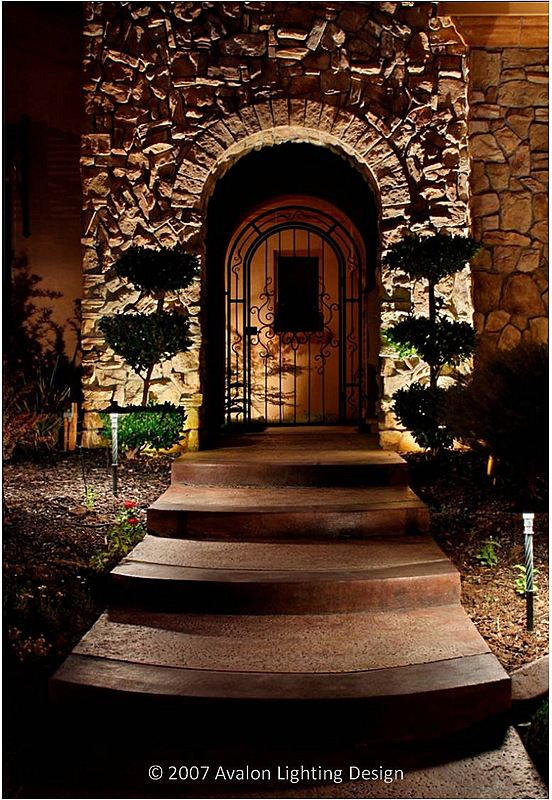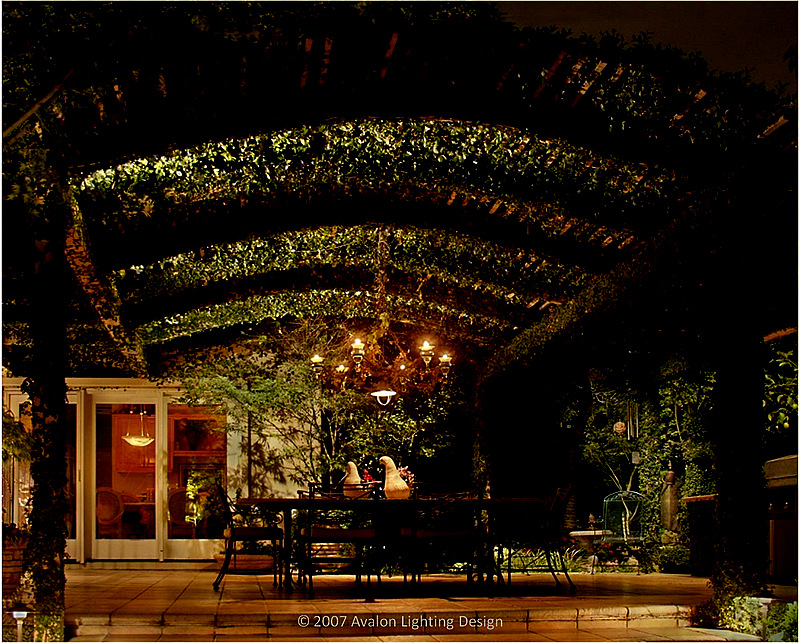03 Sep The False Economy of the Landscape Lighting Do-It-Yourselfer pt. 1
By Mike Gambino
This week I am featuring Mark Carlson of Avalon Landscape lighting. A landscape lighting industry consultant, design/builder, colleague and friend from Roseville Northern California who I have much respect for. Mark Gets it. He can be reached via his website http://www.avalonlighting.com/
By Mark Carlson
 Mike honored me by asking me to be a guest blogger for his website. Before I begin, I want to say that Mike is considered one of the top landscape lighting professionals in this discipline, and I highly respect what he has accomplished. In fact, he is a mentor to me in many ways.
Mike honored me by asking me to be a guest blogger for his website. Before I begin, I want to say that Mike is considered one of the top landscape lighting professionals in this discipline, and I highly respect what he has accomplished. In fact, he is a mentor to me in many ways.
Mike had asked me to write about some of the current trends that are affecting this trade specifically. One of these issues that we all face is that of the Do-It-Yourselfer (DIY) role in the practice of landscape lighting installation. Both Mike and I see this as a big concern, not from the point that it will hurt many contractors performing these installations, but more so because of the safety concerns associated with this work and the quality of the work that results .
As you may know, the internet and opportunity to access information on just about everything is at our finger tips. Children are now taught skills in kindergarten, which is incredible, because I remember my first computer class that was taught my senior year of high school! Yikes! Regardless, this movement has allowed every consumer the ease to research and learn about products, installation methods, lighting techniques, etc. It’s a powerful and wonderful thing.
I want to talk about how these conveniences really impact the whole dynamics of this unique trade specialty. These impacts will be broken down into separate categories, so that they can be identified and discussed.
Contractor’s Business
If we look at the majority of those performing this trade, you will find that many lack the professional discipline that should be in place. The problem is that this majority (95%) are comprised of mostly landscapers, irrigation guys, and other contractors that provide this work as an add-on business. So, we are already starting off bad out of the gates. There are relatively few that will ever aspire to the levels that Mike and I have because most lack the motivation and passion to achieve this.
Now, let’s address how the consumer’s ability to purchase directly hurts the majority of these contractors and our industry. First, when the consumer buys direct, they take away the opportunity for the contractor to allow for price mark-ups on these products. I know that many consumers would say, “who cares, because we can save money”. However, in doing so, you are providing an imbalance in the overall accounting process of the contractor’s ability to recover his overhead expenses. The consumer has to understand that the contractor has to pay for many unseen expenses in his company and there has to be a means to recover this overhead—there’s no way around it. If the contractor doesn’t pay his bills, then he goes out of business!
I think that most consumers have this illusion that the contractor is making so much money and that they are completely taking advantage of the consumer—this is far from the truth! In today’s economy and market, we are all faced with many regulations and costs for legally operating a business. It’s actually overwhelming and especially so in California.
 Back to the impact of buying direct. If the contractor cannot gain any mark-up on these products, then where is he to get it from? This is a point that ALL consumers need to understand…..the contractor will have to increase his labor rates to compensate for this loss. With that said, is the consumer really saving any money to buy direct? NO.
Back to the impact of buying direct. If the contractor cannot gain any mark-up on these products, then where is he to get it from? This is a point that ALL consumers need to understand…..the contractor will have to increase his labor rates to compensate for this loss. With that said, is the consumer really saving any money to buy direct? NO.
Quality Control
Another potential negative impact is that of quality and quality control, now that the consumer is dealing directly with the manufacturer or distributor on line store. The first thing I would ask is “how does the consumer expect to know who is a good, quality provider versus one that is not?” There are so many companies out there that are offering products, and even the contractor does not fully understand this. Typically, most contractors like to get into a stream of habits and processes, and most of them take the easiest route….the path with least resistance. If that’s the case, most of these guys are offering products that they can access at their local distributor in town, and most of these companies only provide 1 to 3 product lines, on average.
Alternatively, the contractor might buy from a direct, on line service himself, so that he too can find the cheaper options that might best fit his business model. However, many of these companies are lower-end product supply houses. The majority these companies are not really manufacturers, as they may claim to be. Several of them are skirting around the fact that they are really “importers” of overseas products that lack any patent protection. And because of this, they are direct knock-offs of other original brands that are now marketed under a different name. It really is unbelievable at how rampant this market segment really is. Again, this is occurring more and more because the contractor is trying to find a way to make ends meet. However, this practice is now open and available to the consumer, so there is added competition. The point is that these products are becoming more prevalent and therefore, it is cheapening the quality of lighting installations. This alone is opening the door to additional unhappy consumers. Future generations will view low voltage landscape lighting as cheap and of poor value, due to these poor practices.
There’s another side to this problem which involves warranties. What happens to the consumer or even the contractor who works with these companies (importers) and there is a warranty claim? Most do not understand the true impact of this scenario because they do not read the fine print on these warranty statements. If you dissect many of these statements, you will find that these so-called manufacturers (importers) do not really have any warranty. This occurs because of the way they pass the buck back to the original product maker. For example, please read the following and tell me if this makes sense:
“Goods which may be sold by (company X) but are not manufactured by (company X) are not warranted by (company X), but sold only with the warranties, if any, of the manufacturers thereof”.
Do you see what I mean here—it’s very confusing at best! You really only have two options here: 1) be very thorough in your understanding of what and who you are working with, or 2) hire a solid and reliable landscape lighting professional, like Mike and I, that fully understands this industry and the products being used. The old statement, “Buyer-beware” is more so important now than ever before.
I applaud Mike’s efforts and dedication to this industry to design and produce his own products, which are exclusively made under his direction. He is fortunate in this, as most other professionals have not achieved this ability and therefore, he is one-of-a-kind. His products are extremely well made and respected by so many in this trade. This is not a plug for Mike, but it is the truth and reality that he has overcome the disadvantages that exist for most of us. He truly offers his customers something special and he 100% stands behind his work—you won’t find a better operation to work with in this specialty.
This landscape lighting blog is published by Mike Gambino of Gambino landscape lighting inc. all rights reserved. Mike is a professional landscape lighting system designer/ builder and has been designing, installing and maintaining landscape lighting systems for more than 20 years. Mike resides in the Los Angeles area with his wife and 2 sons. To visit his website go to www.gambinolighting.com . To inquire about hiring Mike please click here .
Blog articles may be published with permission on other websites without editing or removing links.



No Comments